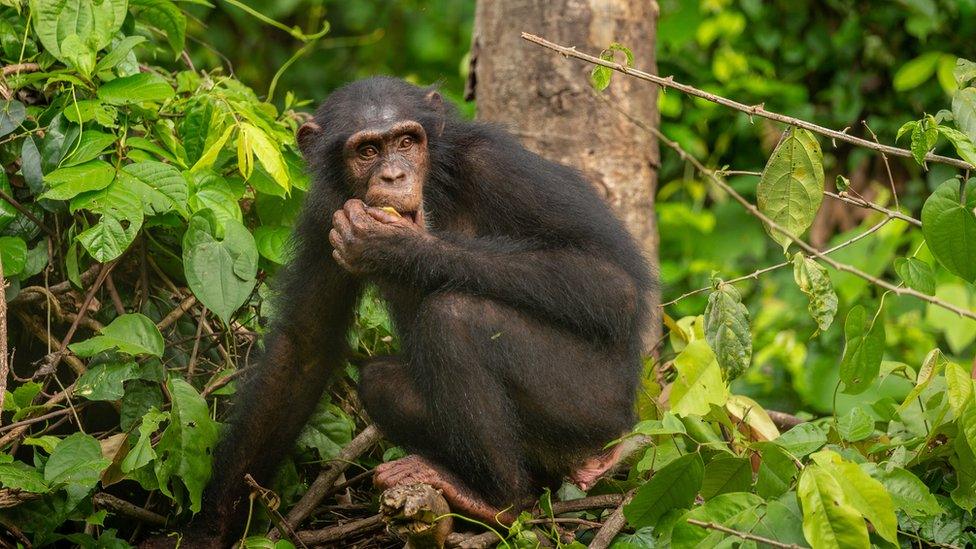Coronavirus: Fears for future of endangered chimps in Nigeria
- Published

The chimp is found in a small area of Nigeria and Cameroon
An award-winning conservationist says she fears for the future of some of the world's most endangered chimps.
Devastated by hunting and deforestation, they now face a threat from coronavirus, says Rachel Ashegbofe Ikemeh, project director of The South-West/Niger Delta Forest Project.
The pandemic is bringing to the fore issues such as wildlife trade and consumption, she says.
And it's time for conservationists to speak up and advocate change.
"There should be changes, there should be regulations, and there should be policies that would bring an end to wildlife trade, and especially the bushmeat markets," she told 91Čȱ¬ News.
Rachel Ashegbofe Ikemeh
With forests lost to farming and logging, chimpanzee habitat has been fast disappearing across Africa. And poaching is also a grave threat, with chimps hunted for their body parts or taken alive and sold as pets.
The forests of southwestern Nigeria harbour populations of the most endangered of all chimp groups, the Nigeria-Cameroon chimpanzee sub-species (Pan troglodytes ellioti).
About 100 chimpanzees live in two forested areas, making up an "extremely precious and extremely endangered" distinct population, says Rachel Ashegbofe Ikemeh, who has won a "Green Oscar" from the Whitley Fund for Nature for her work.
She will use the money to work with the government to establish conservation areas and to advocate for tougher laws to protect wildlife. Many wildlife preservation laws in the region were created decades ago and are now in need of reform.
The Nigeria-Cameroon chimp lives in forests along the border
A reserve in the Ise Forest has recently been approved by Nigeria's Ekiti state government, following years of campaigning. Despite this "good news", she fears for the chimps' future if coronavirus strikes.
"The fears for the chimps are great because chimpanzees share about 98% of human genetics," she says. "They are very vulnerable to contracting or being infected by any disease that humans have."
It's not known if great apes can contract the virus, but precautionary measures are being taken.
Gorilla tourism in Africa has been suspended, while sanctuaries for other apes, such as orangutans, have closed to the public.
Follow Helen .